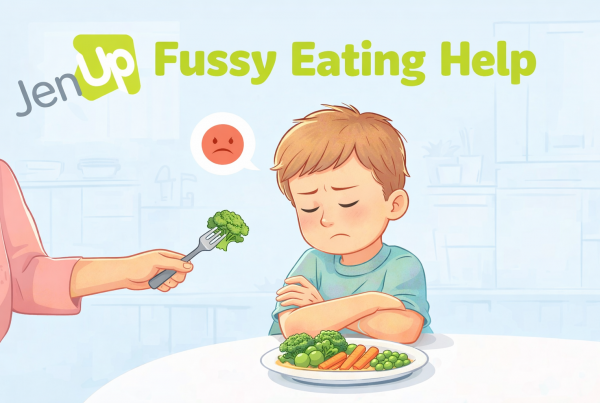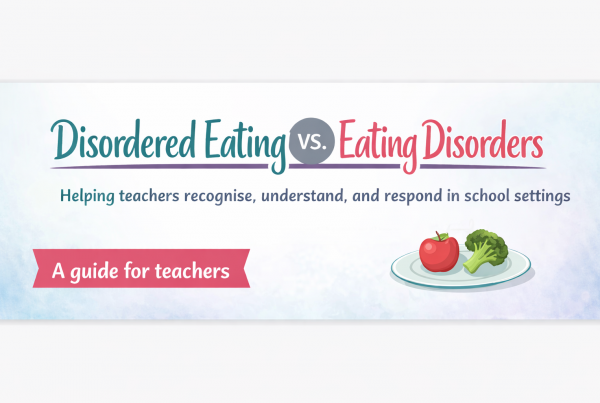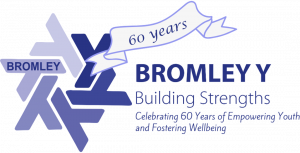
Last Updated on October 29, 2025 | Published: October 28, 2025 published by Jenny Tomei
Understanding eating disorders is vital, especially in teens. These conditions can significantly impact both physical and mental health. When discussing eating disorders, we refer to serious issues that influence how someone thinks about food, weight, and their body. Recognizing early signs of these disorders can drastically improve chances of getting help in time.
Adolescence is a time of change. Young people are figuring out who they are, and sometimes this includes how they see themselves and their bodies. Unfortunately, some may develop unhealthy eating habits or behaviors. This is why it’s important for parents, teachers, and friends to be aware of the signs.
Eating disorders can take many forms, such as anorexia nervosa, bulimia nervosa, and binge eating disorder. Each type has its own symptoms and challenges. For instance, someone with anorexia may be very thin and afraid of gaining weight, while someone with bulimia might eat a lot of food and then try to get rid of it. Knowing these signs can help you spot when someone might need support.
In this article, we will explore the different types of eating disorders and their early warning signs. We will also discuss the importance of early intervention and how to support someone who may be struggling. By understanding these factors, we can help those in need find the right resources and support.
What are eating disorders?
What are eating disorders? They are serious mental health conditions that can greatly affect a person’s life. Eating disorders are characterized by severe disturbances in eating behaviors. This means that someone with an eating disorder might have unhealthy thoughts about food, their weight, or their body image. These thoughts can lead to harmful eating habits, which can cause both physical and emotional problems.
Eating disorders can affect anyone, but they are especially common among adolescents. In fact, statistics show that a significant portion of young people experience these disorders. Studies indicate that up to 5% of adolescents may struggle with an eating disorder at some point in their lives. This number can vary based on factors like gender and age. For example, while eating disorders are more frequently diagnosed in girls, boys can also be affected. It’s important to understand that anyone can develop an eating disorder, regardless of their background.
Recognising these conditions early is essential. The sooner someone gets help, the better their chances of recovery. If you or someone you know is showing signs of an eating disorder, consider downloading our FREE resources on early intervention of eating disorders https://jenup.co.uk/eating-disorder-resources/. Early support is very crucial.
Types of eating disorders can vary, but some are more common among adolescents. Understanding these different types is important for recognising the signs and getting help when needed.
Here are the most common eating disorders that affect young people:
Anorexia Nervosa
Anorexia nervosa is characterised by self-starvation and an intense fear of gaining weight. People with this disorder often see themselves as overweight, even when they are dangerously thin. This can lead to extreme weight loss and other serious health issues.
Symptoms of Anorexia
Common symptoms include extreme weight loss, low energy, and changes in mood. Someone with anorexia may become withdrawn, irritable, or depressed. It’s important to pay attention to these signs, as they can indicate a serious problem. They may also start skipping meals, feeling guilt for eating, and may also start exercising excessively.
Bulimia Nervosa
Bulimia nervosa involves cycles of binge eating followed by purging. During a binge, a person may eat a large amount of food in a short time and then try to get rid of it through vomiting, excessive exercise, or using laxatives.
Recognising Bulimia
Signs of bulimia can include frequent bathroom trips after meals and dental issues, such as tooth decay or sensitivity. If you notice these behaviors in someone, it may be a sign that they need help.
Binge Eating Disorder
Binge eating disorder is characterized by episodes of eating large quantities of food without any compensatory behaviors, like purging. This can lead to feelings of shame or guilt.
Health Risks
Associated risks of binge eating disorder include obesity and related health issues, such as diabetes and heart disease. It’s vital to address this disorder early to prevent long-term health problems.
Other Specified Feeding and Eating Disorders
This category includes disorders that cause distress but do not fit neatly into the other categories. These can include a variety of eating behaviors that still impact a person’s health and well-being.
Understanding these types of eating disorders is a key step in recognising when someone may need help. If you or someone you know is struggling, consider reaching out to organisations like the National Eating Disorders Association (NEDA) for other support and resources. The more we know about eating disorders, the better we can support those who are affected.
Identifying early signs of eating disorders is essential for getting timely help. The sooner someone can receive support, the better their chances for recovery. Here are some key areas to watch for when it comes to recognizing potential eating disorders:
Behavioral Changes
One of the first things to notice are changes in eating habits. If someone starts skipping meals or becomes secretive about their food intake, this could be a warning sign. They might avoid eating around others or develop strict rules about what they can and cannot eat. These behaviors can indicate that something is wrong and that they may need help.
Physical Signs
Look for noticeable weight changes, whether it’s significant weight loss or gain. Fatigue is another important indicator; if someone seems unusually tired or lacks energy, it could be a sign of an eating disorder. Gastrointestinal issues, such as stomach pain or frequent trips to the bathroom after meals, can also be red flags. These physical symptoms should not be ignored.
Emotional Indicators
Emotional changes can also signal an eating disorder. Increased anxiety, depression, or mood swings are common among those struggling with these issues. If you notice someone becoming more withdrawn or irritable, it may be time to check in with them. These emotional indicators are just as important as behavioral and physical signs.
Recognising these early signs can help friends and family members intervene before the situation worsens. If you suspect that someone you know is struggling, consider downloading one of our FREE resources https://jenup.co.uk/eating-disorder-resources/ for guidance and support. Taking action early can make a significant difference in someone’s recovery journey.
The importance of early intervention in eating disorders cannot be overstated. Recognizing and addressing these issues as soon as possible is vital for recovery. When we catch these problems early, we can help prevent them from becoming more serious.
Impact on Mental Health
Eating disorders can lead to severe mental health issues if not addressed. Many individuals may experience anxiety, depression, and low self-esteem as a result of their eating behaviors. These feelings can create a cycle that makes it even harder to recover. Early intervention can help break this cycle, allowing individuals to regain control over their thoughts and feelings. Support from family, friends, and professionals can make a significant difference in mental health outcomes.
Physical Health Consequences
The physical health consequences of eating disorders can be severe. Without early treatment, long-term health complications may arise, including malnutrition, heart problems, and digestive issues. In some cases, these complications can be life-threatening. By recognizing the signs early and seeking help, we can reduce the risk of these serious health problems. Getting medical attention promptly can help restore physical health and prevent lasting damage.
If you suspect that you or someone you know is struggling with an eating disorder, it’s crucial to act quickly. Remember, early intervention is key to a healthier and happier future. Taking action now can lead to better recovery outcomes and overall well-being.
Supporting adolescents who may be struggling with an eating disorder is crucial. Friends and family can play a vital role in their recovery. Here are some ways to provide support:
Starting the Conversation
Starting a conversation about eating disorders can be challenging, but it’s important to approach the topic sensitively and supportively. Begin by creating a safe space where the person feels comfortable sharing their feelings. You might say something like, “I’ve noticed you seem a bit down lately. Is there anything you want to talk about?” It’s essential to listen without judgment and let them express themselves. Showing that you care can make a significant difference.
Encouraging Professional Help
While being supportive is important, it’s also vital to encourage the person to seek help from healthcare professionals. Professional guidance can provide the necessary tools for recovery. You might suggest, “I think talking to someone who understands these things could really help. Would you be open to that?”
Resources for Support
There are many resources available for those struggling with eating disorders. We offer FREE resources on our website https://jenup.co.uk/eating-disorder-resources/ and also provide one-to-one support for people struggling with eating disorders. Encouraging someone to reach out to these resources can be a crucial step in their recovery journey.
By being there for your loved one and guiding them toward professional help, you can make a positive impact on their recovery. Remember, every little bit of support counts, and early intervention can lead to a healthier future.
In conclusion, recognising the early signs of eating disorders is incredibly important. The sooner we identify these signs, the better chance we have to help those who are struggling. Eating disorders can have serious impacts on both mental and physical health, but with timely intervention, recovery is possible.
Throughout this article, we’ve discussed various types of eating disorders, the behavioral, physical, and emotional signs to look for, and the importance of early intervention. We also explored how friends and family can provide support and encourage those in need to seek professional help.
If you suspect that you or someone you know is dealing with an eating disorder, don’t wait. Reach out for help. By being proactive and supportive, we can help those affected by eating disorders lead healthier, happier lives. Remember, every step taken toward understanding and support can make a significant difference in someone’s recovery journey.












